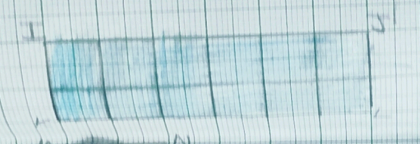Activity W4.3- shapes found around us.
Give children stamps of square and rectangular shapes found around us.
Ask them to paste on a grid and calculate the number of grid squares covered by each one of them.
Activity W4.3: Area Using Everyday Shapes
Give children **stamps or cutouts** of square and rectangular shapes from everyday objects (like books, boxes, tiles, etc.). Ask them to paste these on a **square grid sheet** and calculate the number of grid squares covered by each shape.
Example Images:
Children will place rectangular objects on a grid like this
Example: A matchbox covering 4 squares (2 × 2)
Step-by-Step Activity:
- Provide children square grid paper and shape cutouts.
- Children paste the shape on the grid.
- They count how many full squares it covers.
- Record and tabulate their answers.
Examples:
Example 1:
A square stamp covering 3×3 squares.
Area = 3 × 3 = 9 square units
A square stamp covering 3×3 squares.
Area = 3 × 3 = 9 square units
Example 2:
A book cutout covering 5 rows and 2 columns.
Area = 5 × 2 = 10 square units
A book cutout covering 5 rows and 2 columns.
Area = 5 × 2 = 10 square units
Conclusion:
The area of any square or rectangle is calculated by multiplying the number of grid squares along its length and width.
The area of any square or rectangle is calculated by multiplying the number of grid squares along its length and width.
Area = Length × Breadth
By counting Squares for area
ABCD = 3 X 4 = 12 SQ UNITS
ABCD = 3 X 4 = 12 SQ UNITS
EFGH = 2 X 6 = 12 SQ UNITS
IJKL = 6 X 2 = 12 SQ UNITS
MNOP = 12 X 1 = 12 SQ UNITS
QRST = 1 X 12 SQ UNITS
UVWX = 4 X 3 = 12 SQ UNITS





No comments:
Post a Comment